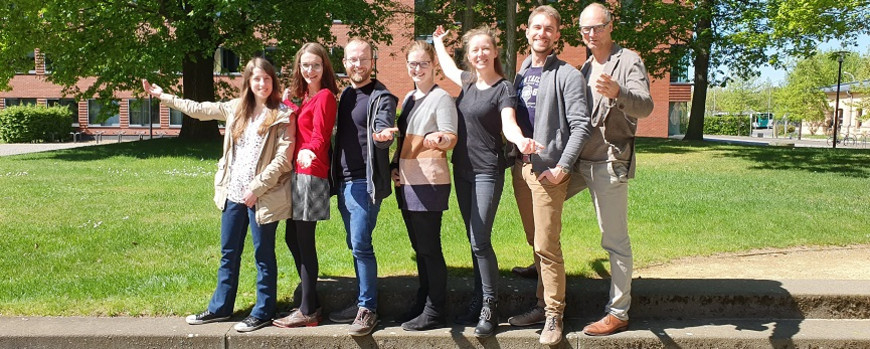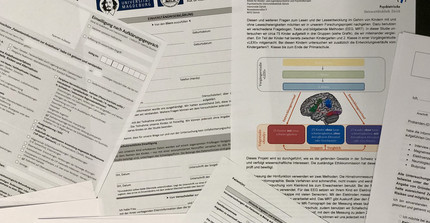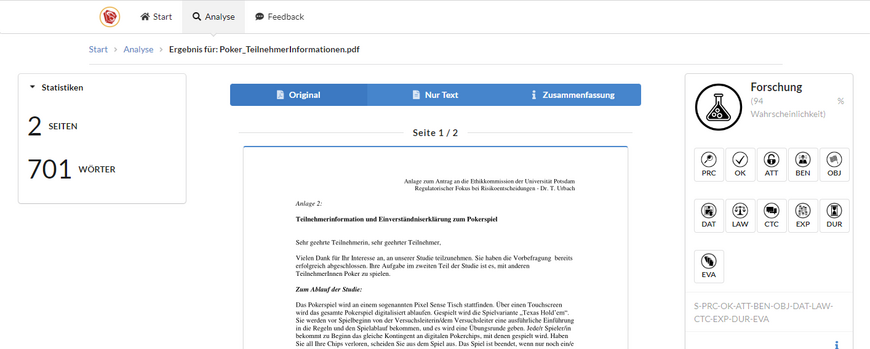miiConsent
Modular Iconographic Informed Consent
„[...] analyzes and evaluates new interdisciplinary topics and future developments of social relevance with regard to their opportunities and risks.“
Informed consent forms are often non-transparent, overloaded and far too complex. Thus, they fail to serve their purpose of providing sufficient information. The aim of the project is to simplify the content of these documents and thus increase their transparency and effectiveness.
The project is funded by the German Federal Ministry of Education and Research (BMBF) as part of the Innovation and Technology Analysis (ITA) and is assigned to the thematic area "Participatory Capability".
Duration: 01.01.2019 - 31.12.2020
Our analysis tool - RUNA
RUNA is the core result of the Potsdam working group and enables the upload of consent documents, which are then converted into a machine-readable format and analyzed by using text recognition. The analysis results show, in addition to the original representation of the document, some statistical information and iconographic visualization of the content. Hovering the mouse over the icons displays supplementary information and highlights the relevant passages in the consent document. Runa has been tested by experts in the field, where it has received excellent feedback.
Further development
The statistical analysis has further potential, e.g. by adding metrics for text comprehensibility, which would make the tool useful for the creation of consent documents. Visualization of content has potential with regard to components not found but expected; this would be useful both for formulating questions in the consent process and for creating documents. Currently, the tool is geared towards desktop use; however, mobile use scenarios are also useful. Therefore, in the course of a cost-neutral extension, such further development possibilities should be systematically surveyed and implemented as far as possible.
Project Team

Project coordination
Prof. Dr. theol. habil. Arne Manzeschke(Evangelische Hochschule Nürnberg)
Project partners
Prof. Dr.-Ing. habil. Ulrike Lucke (University of Potsdam)
Research assistants
Dominik Kemmer, M.A./B.Sc./B.A.(EVHN)
Dipl.-Inf. Tobias Moebert (UP)
Ina Müller, M.A. (UP)
Julia Geier, B.Sc.(EVHN)
Anita Krüger, B.Sc. (UP)
The project is designed to be participatory and inclusive: Citizens and representatives of various interest groups are actively involved as external experts and form a project advisory board.
Contact

Prof. Dr. theol. habil. Arne Manzeschke





